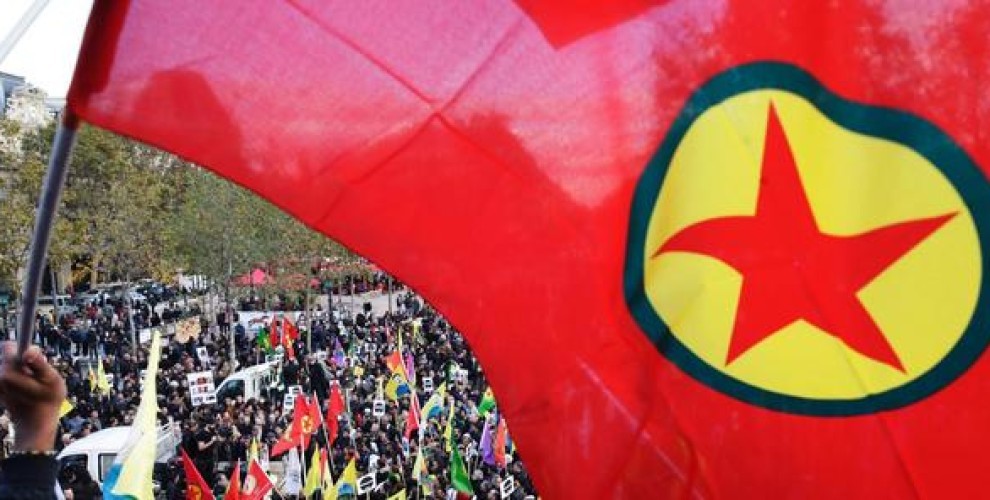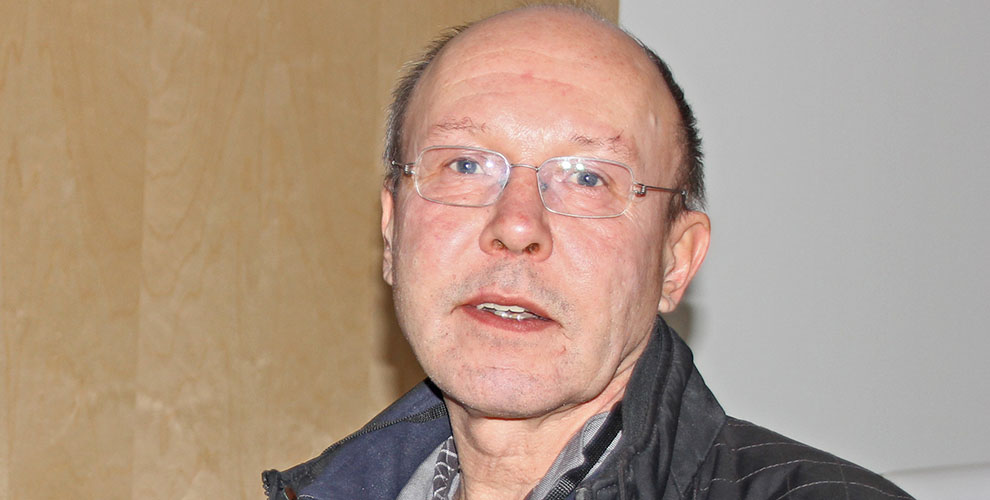The conference on PKK ban in Germany will determine a strategy
This Saturday, a conference on the 25-year PKK ban in Germany will take place in Berlin. Elmar Millich commented on the content and objectives of the conference in an interview with ANF.
This Saturday, a conference on the 25-year PKK ban in Germany will take place in Berlin. Elmar Millich commented on the content and objectives of the conference in an interview with ANF.

On October 20, Azadi Association, the International Association for Human Rights and Democracy (MAF-DAD), the Lawyers for Democracy and Human Rights Association (EJDM/ELDH) and the Roten Hilfe Federal Administration are organizing a conference in Berlin titled “25 Years of PKK Ban: 25 Years of Oppression, and Democracy Serving German Foreign Policy”.
In an interview with ANF, Elmar Millich commented on the content and objectives of the conference as chairman of the legal assistance fund for AZADÎ Association that defends the arrested Kurdish politicians in Germany.

What can you say about the 25th anniversary of the PKK ban?
The PKK ban, which has been in place since 1993, is justified in terms of domestic policy, but the fact that no changes have been made for 25 years has mainly foreign policy reasons. Germany and Turkey have more than one hundred years of alliance policy. The ban is not being touched on and it is even extended to the Syrian-Kurdish organizations PYD/YPG/YPJ as in 2017, in order to accommodate Turkey without having to make commitments in other areas, such as the visa-free regime for Turkish citizens. Dealing with the Kurdish liberation movement has never been based on general principles of the rule of law, but has always been mainly a bargaining chip in the reconciliation of interests with Turkey. That is still the case. Germany does not have the military capabilities of the superpowers to intervene directly in the Middle East. Therefore, it needs Germany as an alliance partner to implement its main economic interests there. This geostrategic view is subordinated to all other aspects.
At the conference, you will also make a comparison of the ban in Germany with other European countries. Why?
From time to time there are prosecutions in other European countries against politically active Kurds, but this is not comparable in scale with the situation in Germany. A ban of the PKK exists in this form only in Germany. That certainly has something to do with the fact that most Kurds have gone to Germany for historical reasons. Prohibitions here harm the Kurdish liberation movement much more than in Portugal with a few Kurdish exiles. Turkey knows that too and is putting considerable pressure on Germany in this matter. The whole thing is also included in the case law. In connection with legal proceedings for membership of a foreign terrorist organization (StGB §129b), the German Federal Court of Justice has qualified the PKK as a terrorist group targeted for murder and manslaughter. On the other hand, a court in Belgium came to the conclusion that the PKK was not a terrorist organization but an armed party to a conflict within the meaning of international law.
What do you expect from the conference?
Our conference covers several aspects: First, we take the 25th anniversary of the PKK ban to take stock of the repression of the Kurdish liberation movement in Germany. The first block will feature people who have actively followed the political persecution during this period. The European aspect, as described above, is covered by defense lawyers reporting on judicial proceedings in their respective countries and before the European Court of Justice in Luxembourg. But of course we are also concerned with the current repression in Germany. This still includes arrests of politically active Kurds according to §129b described above, but also prohibitions on events registered by NAV-DEM. Another focal point is the state action against the use of the symbols of PYD/YPG/YPJ. In this context, there were many police raids this year against both Kurdish and German leftist organizations, which show solidarity with Rojava. Above all, the conference should provide legal assessments and strategies against this. However, we also use the conference to present our current documentation brochure on the subject of the 25 years of PKK Ban.